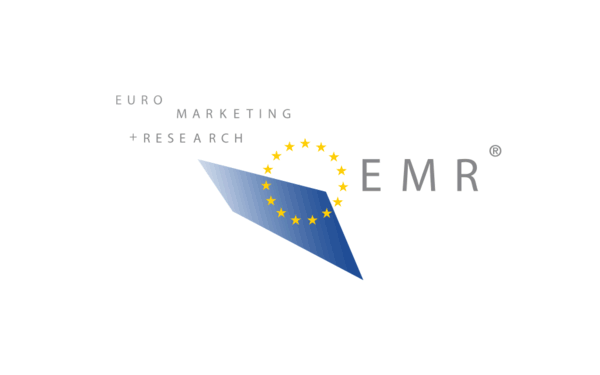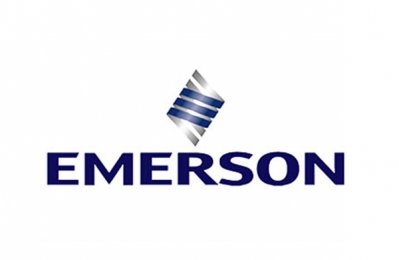Emerson – Emerson to Acquire Afag and Accelerate Factory Automation Capabilities
Acquisition expands Emerson’s factory automation served market by $9 billion and enhances exposure to key growth markets in discrete and hybrid
ST. LOUIS (August 17, 2023) – Emerson (NYSE: EMR) today announced a definitive agreement to acquire Afag Holding AG (“Afag”), an innovative leader in electric linear motion, feeding and handling automation solutions.
Headquartered in Zell, Switzerland, Afag brings state-of-the-art technology and innovation to Emerson. The transaction will enhance Emerson’s capabilities in factory automation, one of the Company’s four priority adjacencies, and create a leading motion portfolio combining Afag’s electric linear motion solutions with Emerson’s pneumatic motion technology. Afag serves customers in attractive, growing end segments including battery manufacturing, automotive, packaging, medical, life sciences and electronics. The electric linear motion segment expands Emerson’s served market by more than $9 billion and is expected to grow mid-single digits annually, supporting Emerson’s long-term, profitable organic growth.
“Afag brings exciting technology that will enable Emerson to accelerate growth in our existing $900 million factory automation business,” said Ram Krishnan, chief operating officer of Emerson. “As discrete and hybrid customers continue to accelerate electrification across their manufacturing processes, Afag’s technology is ideally suited to provide improved energy efficiency and performance gains. We look forward to combining Afag’s motion capabilities with our existing pneumatic leadership, creating a unique and differentiated solution for our customers. Afag and its employees will play an important role in enhancing Emerson’s strength and innovation in factory automation.”
“We are excited to join Emerson and build on its existing factory automation leadership, while further expanding our global reach,” said Adrian Fuchser, chief executive officer of Afag. “Our customers rely on Afag for essential, customized systems and we are energized by this opportunity to create a more comprehensive and holistic solution for their motion needs. We share Emerson’s vision of providing complete solutions in essential industries and we look forward to driving continued success as part of Emerson.”
The transaction is expected to close by the end of Emerson’s fiscal 2023, subject to customary closing conditions, including receipt of regulatory approvals. Terms of the transaction were not disclosed. Afag will be reported in Emerson’s Discrete Automation segment.
For the transaction, Bryan Cave Leighton Paisner LLP is serving as legal advisor to Emerson.
SourceEmerson
EMR Analysis
More information on Emerson: See the full profile on EMR Executive Services
More information on Lal Karsanbhai (President and Chief Executive Officer, Emerson): See the full profile on EMR Executive Services
More information on Ram Krishnan (Chief Operating Officer, Emerson): See the full profile on EMR Executive Services
More information on Afag Holding AG: https://www.afag.com/de/home.html + Simply. process reliable. Innovative. With people who inspire.
As a leading supplier, Afag has been developing and producing components for assembly automation in the fields of feeding, handling and solutions for over 65 years. Afag has set itself the goal of meeting the high demands of the global automation industry with the latest technologies and innovative solutions. Thousands of handling modules, feeding and transport systems sold by Afag stand for the very good quality and reliability of our products.
We employ over 300 people at our branches in Switzerland, Germany, China and the USA. This is where solutions are created that are used in all manufacturing sectors. From automotive to consumer goods, food, machines, medicine, pharmaceuticals and cosmetics to the watch industry.
Thanks to our sales partners in over 30 countries, our customers around the world enjoy professional advice, planning and service.
Afag is part of the Schaeff Group: https://www.schaeffgroup.de/en-gb + Our group includes high-tech companies. Our companies develop and produce all over the world with very well trained and highly motivated employees – they guarantee our innovative spirit and our flexibility. Our investment focus is on mechanical engineering and companies that manufacture end products or subsystems: We are primarily interested in companies that are market leaders in their industry and can also imagine takeovers from “difficult company situations”.
More information on Adrian Fuchser (Chief Executive Officer, Afag): https://www.afag.com/en/company/news-events/news-single-view/changes-to-the-top-management-of-the-afag-group-1.html + https://www.linkedin.com/in/adrian-fuchser-3324a69/
More information on Bryan Cave Leighton Paisner LLP: https://www.bclplaw.com/en-US/ + Companies – including 35% of the Fortune 500 – rely on us to protect their interests and make their business ambitions become business realities. We help clients overcome the complexity and challenges caused by competition, disputes, regulation, globalization and market disruption.
Whatever opportunity or problem a business faces, we bring to bear the combined experience of over 1,200 respected M&A, real estate, financial services, litigation and corporate risk lawyers across 31 offices in North America, Europe, the Middle East and Asia. Our priority is applying legal excellence to help businesses find practical, executable solutions. Furthermore, having been named a leader in law firm innovation four times in the last decade, clients can expect us to do that efficiently, effectively, and to adapt quickly.
Distinctively for law firms, Bryan Cave Leighton Paisner is purposefully structured as a single, fully integrated international team, meaning clients can rely on clear, connected legal advice, wherever and whenever it’s needed. We will work collaboratively to provide strategic value and build enduring relationships.
Our pioneering spirit is built upon a deep heritage in legal excellence, brought to life by a set of core values that define who we are and how we work.
More information on Steven M. Baumer (Co-Chair, Bryan Cave Leighton Paisner LLP): https://www.bclplaw.com/en-US/people/steven-m-baumer.html + https://www.linkedin.com/in/steve-baumer-430b8ab/
EMR Additional Notes:
- Industrial Automation:
- Industrial automation is the use of technologies such as computer software and robotics to control machinery and processes which replace human beings in performing specific functions. The functions are primarily centered on manufacturing, quality control and material handling processes.
- Fixed Automation:
- Fixed automation systems are utilized in high volume production settings that have dedicated equipment. The equipment has fixed operation sets and is designed to perform efficiently with the operation sets. This type of automation is mainly used in discrete mass production and continuous flow systems like paint shops, distillation processes, transfer lines and conveyors. All these processes rely on mechanized machinery to perform their fixed and repetitive operations to achieve high production volumes.
- Programmable Automation:
- Programmable automation systems facilitate changeable operation sequences and machine configuration using electronic controls. With programmable automation, non-trivial programming efforts are required to reprogram sequence and machine operations. Since production processes are not changed often, programmable automation systems tend to be less expensive in the long run. This type of system is mainly used in low job variety and medium-to-high product volume settings. It may also be used in mass production settings like paper mills and steel rolling mills.
- Flexible Automation:
- Flexible automation systems are utilized in computer-controlled flexible manufacturing systems. Human operators enter high-level commands in the form of computer codes that identify products and their location in the system’s sequence to trigger automatic lower-level changes. Every production machine receives instructions from a human-operated computer. The instructions trigger the loading and unloading of necessary tools before carrying out their computer-instructed processes. Once processing is completed, the end products are transferred to the next machine automatically. Flexible industrial automation is used in batch processes and job shops with high product varieties and low-to-medium job volumes.
- Integrated Automation:
- Integrated industrial automation involves the total automation of manufacturing plants where all processes function under digital information processing coordination and computer control. It comprises technologies like:
- Computer-aided process planning
- Computer-supported design and manufacturing
- Flexible machine systems
- Computer numerical control machine tools
- Automated material handling systems, like robots
- Automatic storage and retrieval systems
- Computerized production and scheduling control
- Automated conveyors and cranes
- Additionally, an integrated automation system can integrate a business system via a common database. That is, it supports the full integration of management operations and processes using communication and information technologies. Such technologies are utilized in computer integrated manufacturing and advanced process automation systems.
- Integrated industrial automation involves the total automation of manufacturing plants where all processes function under digital information processing coordination and computer control. It comprises technologies like:
- Fixed Automation:
- Industrial automation is the use of technologies such as computer software and robotics to control machinery and processes which replace human beings in performing specific functions. The functions are primarily centered on manufacturing, quality control and material handling processes.
- Process Automation / Manufacturing:
- Process automation is defined as the use of software and technologies to automate business processes and functions in order to accomplish defined organizational goals, such as producing a product, hiring and onboarding an employee, or providing customer service.
- Process manufacturing utilizes chemical, physical and compositional changes to convert raw material or feedstock into a product. Process manufacturing includes industries such as cement and glass, chemicals, electric power generation, food and beverage, life sciences, metals and mining, oil and gas, pulp and paper, refining, and water and wastewater. Process manufacturing includes both continuous and batch processes.
- Discrete Automation / Manufacturing:
- Discrete automation is the production of parts that are of a quantifiable nature. That may include cell phones, soda bottles, automobiles, airplanes, toys, etc. As you know, an automobile contains many, many parts. The parts required for an automobile are also quantifiable in nature.
- Discrete manufacturing processes include the production of individual parts as well as their assembly into a final product. Discrete manufacturing examples include automobiles, appliances, and consumer electronics.
- Hybrid Automation / Manufacturing:
- The Hybrid Automation Method follows two guiding principles: Implementing robust automation solutions that are easy and affordable for organisations to maintain. Realising process efficiency rapidly by reducing project overheads and time-to-value.
- Hybrid manufacturing is a combination of additive manufacturing (AM) and subtractive manufacturing within the same machine.


